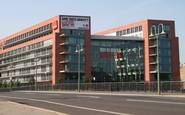 |
|
Welcome to issue no. 2 / 2010 of EWC News. August 2010
|
|
The
training and consultancy network
"euro-workscouncil.net"
EWC
News appears four times a year.
You can find past issues in the newsletter archives.
|
|
1.
Contradictory
rulings on collective bargaining competition
|
|
French judges strengthen collective bargaining unity
The most extensive reform of collective bargaining legislation since World War II came into force in France on 1st January 2009 (see report in EWC News 4/2008). Following the Spanish model the legislator has defined threshold values for negotiation rights that are derived from work council election results. Trade unions which obtain less than 10% of the votes can no longer conclude shop-floor collective agreements. Furthermore, the signing trade unions must totalize at least 30% of the votes for any shop-floor collective agreement to be valid. Union membership figures are not taken into consideration. Industry-wide sectorial agreements require at least 8% of the combined election votes for all work councils within the concerned sector. Painful experiences with the trade union pluralism favored this reform.
The FO trade union took legal action against the threshold restrictions in the Brest labour courts. Although the union had only obtained 7% of the votes in the machine manufacturer SDMO, judges in Brittany ruled, in October 2009, that it did have negotiation rights (see report in EWC News 4/2009). The Brest ruling is now invalid. The plaintiff company section of FO trade union must therefore now adapt to the new situation, as is already the case for many other companies e.g. within SNCF or France Télécom (see report in EWC News 1/2010).
Rules extended to public services sector
Following the regulatory ruling of the Supreme Court, the French parliament adopted an amendment to the collective bargaining law on 23rd June 2010. The threshold value for determining the validity of collective agreements in the public service has consequently been set to 50% of the votes. The pressure on trade unions to unite to form multi-union bargaining groups is therefore even higher than in the private sector, where this threshold value is set to 30%. The following texts are available only in German:
German judges weaken collective bargaining
One consequence of this ruling could be the increased break-up of the collective bargaining system. Employers are already apprehending more labor disputes. The German trade union federation (DGB) together with the Federal Union of German Employers' associations (BDA) have requested the legislator to take action. Nevertheless, this position of the umbrella organizations has met with criticism from the rank-and-file trade unions. As an example, a resolution from the works council of the Frankfurter Rundschau publishing house from 20th July 2010 which takes the opposite position. Also some trade union affiliated lawyers have other opinions, such as Professor Däubler. The ruling is particularly supported by small factions such as the Christian Metalworkers trade union (CGM), who accord the court great respect and who accuse DGB of arrogance. In the past the CGM union has more frequently appeared involved in dumping collective agreements at the expense of employees. |
|
2.
Country
Viewpoints
|
|
Former labor politician appointed as business secretary
Although Cable is the only Minister of the coalition government having close ties with the trade unions, his invitation as a guest speaker to the annual congress of the British TUC, planned for September 2010 was cancelled on 29th July 2010. Shortly before, on 12th July 2010, during a training conference of the TUC, Cable had called for a stronger role for trade unions. Employer suggestions on labour law
While trade unions have not yet made clear their relationship with the new government, there already exist concrete political proposals from the British employers' association CBI. According to a paper published on 21st June 2010, strike rights are to be reduced, recognition of employee representation made more difficult, mass redundancies facilitated and limitations set for compensation payments for any discrimination incurred. The retirement age should also to be raised to 70. The TUC has called this catalogue “exploitation at work ". The United Kingdom already stands out as the country having the smallest level of employee participation in Western Europe, with only Bulgaria and the three Baltic states having weaker participation rights than in the homeland of Manchester capitalism (see report in EWC News 2/2009). Work council members, wishing to familiarize themselves with the current situation of employee representation in the United Kingdom after the change in government, have the opportunity in a EWC seminar taking place on 25th January 2011, in Hamburg.
Outstanding shop-floor agreement in Bulgaria
Bulgaria first introduced work councils as part of its accession to the European Union in 2007; they can be established in all companies with more than 50 employees. While there are many shortcomings when it comes to the involvement of work councils in information and consultation procedures in Bulgarian companies, the situation is substantially better in branches of multinational companies. A transfer of "good practice" apparently takes place through the exchange of experience within European Work Councils.
Soon 17 countries in the euro-zone
Negotiations for the accession of the former Yugoslavian republic, Croatia, could be finalized before the end of 2010. They started in October 2005 together with Turkey. On the day of entry, the country, with its 4.4 million inhabitants, will transpose all social policy directives into national legislation. This includes also the directives concerning European Work Councils and participation rights in European Companies (SE). All existing European and SE Work Councils will need to be extended to accommodate delegates from Croatia. |
|
3. European
Work Councils organize action days
|
|
Bosch Work Councils for structural change rather than plant closure
A European action day took place recently, on 22nd February 2010, for the preservation of the Cardiff plant (Wales) with participants from 30 Bosch locations in seven countries. Although the action day, coordinated by the European works council, was not able to prevent the closure for its 900 employees, it did manage to secure one of the best ever compensation schemes in the history of the United Kingdom.
German Works Council helps end labor dispute in France
The American automobile supplier, TRW, wishes to dismiss 90 of its 400 employees in the Ramonchamp plant in Lorraine. Since October 2009, the delivery of parts and the production process had been disturbed over and over again in Renault and Peugeot after a series of several strikes against these plans. In order to avoid further strike-related delivery losses, TRW management wanted to put in place extra work shifts in German plants. The Gelsenkirchen works council rejected this as "strike breaking". According to German law, agreement of the works council is necessary for any additional workload.
European-wide demonstrations at Vaillant
In the middle of April 2010, central management of the German heating technology manufacturer, Vaillant, announced its restructuring plan, MP3, including the closure of several plants. Bad Kreuznach in Germany and Le Mans in France were to be completely closed together with partial closures of other plants in Germany, Italy and Spain. Altogether 280 jobs in Western Europe are to be wiped out, while at the same time 140 new jobs created in Slovakia.
|
|
4. Agreement on
personnel policy and occupational safety
|
|
In Paris on 14th April 2010, the French electronics group, Thales, signed a European-wide agreement on personnel policy. The contracting partner of central management was not the EWC but the European Metalworkers Federation (EMF). Whereas in June 2009 a previous agreement already dealt with further development of employees (see report in EWC News 2/2009), annual personnel development reviews have now been regulated. A complete set of references and a clear framework has been set out for the whole of Europe.
Charter on occupational health and safety
Transnational collective agreement regulates social consequences of acquisition
The agreement applies to all European Union countries as well as Norway, Switzerland and Turkey. Employees from the affected divisions in Alstom and Schneider Electric are also protected. Once a year, the European works councils will evaluate compliance to the agreement, and at the end of 2010 latest, employee representatives from the new divisions will be integrated into the existing EWC structures. In addition, the European-level agreement for equal treatment, signed for Areva in November 2006 (see report in EWC News 4/2006), is to be put on the agenda of both European works councils. |
|
5. EWC
structure adapted after merger
|
|
On 23rd June 2010 an updated agreement was signed on the European Forum for the US group Eaton. It improves the practical work of the forum, adopts the definitions from the new EWC directive and integrates the European works council of the electrical company Moeller, acquired by Eaton in April 2008. There has been a EWC at Eaton since 1999 under Dutch law and in 2000 Moeller created their EWC under German law. The new agreement is governed by German law, since following the merger Germany has the most employees (3,600, corresponding to 22% of the European workforce).
The Forum may be interpreted as being the joint meeting of the EWC with management. All countries with fewer than 75 employees are not represented in the EWC. The 8 member steering committee is made up of five employee and three employer representatives. There is only one EWC meeting per year, and under extraordinary circumstances a statement has to be provided within 15 days. Contrary to many other EWC agreements there is a provision for out-of-court arbitration to settle disputes.
Dissolution of Cadbury EWC
In September 2010, the EWC of Kraft Foods will meet for the first time in its new configuration. Following the merger of the two food groups, Cadbury and Kraft Foods, ten representatives from the previous Cadbury EWC will join up with the 38 EWC members of Kraft Foods. Both companies have had European works councils since 1996 under British law. Renegotiation of the EWC agreement is not planned before 2011/2012.
A new term of office is to begin on 1st January 2011 for the Vinci European works council. The 27 EWC mandates are to be reassigned to countries following the integration of Cegelec. The French Cegelec group is a supplier of engineering services and has belonged, since April 2010, to the French construction group, Vinci. EWCs have been in place in both companies since 2002 under French law. For the moment EWC members of Cegelec already participate in the plenary sessions of the Vinci EWC.
On 17th March 2010, a procedure for merging both European works councils was elaborated with central management and the Vinci EWC agreement updated. It encompasses the definition of information and consultation from the new EWC Directive. All countries with more than 150 employees from the European Economic Area and Switzerland are represented in the EWC. All members have an annual right to three days of training. Countries with more than 3,000 employees have a mandate in the steering committee, which comes with an annual 120 hour time off work allowance. The EWC chairperson has an allowance of 168 hours.
|
|
6.
New
European Work Councils
|
|
British-Italian Armaments Manufacturer creates EWC
The new EWC consists of 18 members that meet up to twice annually. They are not elected, but appointed half by Italian and half by British trade unions, and select a six member steering committee. The definition for information and consultation was taken already literally from the new EWC Directive. All EWC members receive 60 hour comprehensive individual language training. Selex Galileo is a subsidiary of the Italian armament company, Finmeccanica, which concluded a similar EWC agreement in July 2008 for its helicopter division (see report in EWC News 3/2008).
The national energy producer Statkraft, with 3.400 employees and one of Europe’s largest producers of renewable energies signed an agreement, on 28th April 2010 in Berlin, for the establishment of a European Work Council under Norwegian legislation.
The EWC is composed of twelve members from four countries meeting twice annually and form a 4 member steering committee. Additional countries are to be integrated into the EWC should the company expand. The agreement not only encompasses the definitions of the new EWC Directive, but also world-wide ILO standards and focuses on Corporate Social Responsibility (CSR).
Danish retail chain establishes EWC in two steps
There exists two separately controlled subsidiaries under to the Jysk Holding: whereas Dänisches Bettenlager is to be found in Germany, Austria, France, Italy, Spain and Switzerland, Jysk Nordic operates in many other countries. The EWC agreement does not however apply to Dänisches Bettenlager, which has more than 700 outlets alone in Germany and is therefore much larger than the entire Jysk Nordic group. The German subsidiaries are publicly criticized for their harsh HR policies.
|
|
7.
Documents on
new EWC Directive
|
|
Key Aspects for political debate
On 19th May 2010, the ETUC published a pamphlet on the new EWC Directive in three languages. A summary is given of the eight most important points in the new legislation. On the flipside a table shows how the new legal situation specifically affects the existing EWC agreements.
On 28th May 2010, the European Trade Union Institute (ETUI) in Brussels published an extensive 140 page analysis which examines the new EWC Directive article by article from a legal viewpoint. The wording from existing EWC agreements is taken as example. The analysis was developed with the support of a group of lawyers with close ties to trade unions, working in different European universities.
The Austrian trade union, GPA djp, has published a highly recommendable presentation on the new EWC Directive. It highlights the issue of how a European works council may use the new legal situation to strengthen its influence on transnational restructuring.
|
|
|
|
Wind-power manufacturer as SE
The automobile inspection company, Dekra, has been operating since 13th July 2010 as a SE. The European market leader with 22.000 employees will maintain a parity-based supervisory board of six shareholder and six employee representatives and merely freeze the number of members. Dekra is present in 28 European countries, and besides Germany, particularly in France.
On 28th June 2010, the SE participation agreement was signed at the company headquarters in Stuttgart (photo). In the future, Germany sends four employee representatives to the supervisory board, and France two. The two strongest trade unions, CGT and CFDT, designated one representative each. The SE works council is made up of 19 members and meets twice annually. Eight seats are allotted to Germany, seven to France and one each to Finland, Sweden, Czech Republic and the Netherlands. Countries with fewer than 200 employees are not represented.
First ever direct election of SE supervisory board
2,675 employees were entitled to vote in five countries. For the very first time employees from outside Germany could take part in a board election and used their right to vote to almost 100%. European works council members were elected by the work councils. Since there are no employee representatives in many of the sites outside the headquarters, 725 employees were able to elect their representatives to the European works council also by direct elections on the same day.
Revision of SE legislation expected
The discussions of two working groups are available in video on the Internet, with embedded expert presentations. Frightening results from practical observations: the SE is very frequently misused to limit the influence of employee participation and to freeze the size of supervisory boards. This explains the above average high number of SE creations in Germany, where for years the business press has deliberately highlighted this possibility to misuse it (see report in EWC News 2/2008). In March 2010, the Hans Böckler Foundation reported on the subject and noted a proportionally strong increase in employee participation evasion through the use of foreign legal forms (see report in EWC News 1/2010). On 23rd March 2010, the European Commission initiated a public consultation on the revision of the SE legislation, whose results were published on 2nd July 2010. |
|
9. Establishment
of World Work Councils
|
|
Globalised Euro-Works Council based on latest EU legislation
The events on 8th July 2010 illustrated the importance of establishing co-operation beyond Europe. After a critical press report on the situation in a Swedwood factory in Virginia USA, central management broke off all discussions on the matter with the Swedish trade unions. Recognition of employee representation is being denied for the Virginian workforce. The Swedish Press Group, Elanders, behaves in a totally different manner. In January 2009, at the same time as establishing its EWC, an international framework agreement was signed which promotes the recognition of employee representatives in the USA (see report in EWC News 1/2009).
The international framework agreement for PSA Peugeot Citroën of March 2006 (see report in EWC News 2/2006) was updated and extended on 20th May 2010 in Paris. Provision is firstly made for the establishment of a World works council made up of all members of the European works council. Representatives then join from all countries with more than 500 employees, including Brazil and Argentina. For the time being Russia, where a new factory was opened in April 2010, will not participate.
An agreement for the establishment of a World works council was signed on 23rd June 2010 in Paris, between several trade unions, the chairman of the European works council and the central management of France Télécom. The council is composed of 33 members with a nine member steering committee; five from Europe, two from Africa and two from the rest of the world. The World works council meets once annually for three days. Extraordinary meetings are possible when projects are expected to have a considerable effect on the workforce. World works council members have a provision for an annual 30 hours time off work in addition to meetings, and the steering committee members 100 hours. The agreement provides a right to training. It resembles French EWC agreements and is unusually elaborate for a World works council. In December 2006, France Télécom had also signed an international framework agreement on minimum social standards (see report in EWC News 1/2007). |
|
The French airline Air-France/KLM’s European works council has recently put in place its own Internet website. A few of the 38 EWC members are introduced in a lively animated video. Besides contact information, important documents are available for download and weekly messages from other European works councils. The EWC was established in 2006 after the merger of the two former companies. Further exceptional European works council websites:
Immediately following European Union accession in the year 2004, the Hungarian Energy group, MOL, created the very first EWC in Central-Eastern Europe. Now, a new website presents the results of a conference held from 23rd to 26th March 2010 in the Hungarian Spa town Zalakaros. Included is a document which describes the communication strategy of MOL employee representatives which may serve as a model for other European works councils.
New Internet Forum for Works Councils in large beer groups
Recent reports from the working world can be heard on Radio Labour. Every Friday a five minute program is available with the events of the past week and every Sunday a 30 minute report is broadcast. The program is edited in Canada, and reporters provide information from all over the world. We have arranged various further interesting web-pages into a collection of links.
|
|
11. New
publications
|
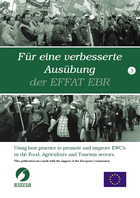
In December 2009, European Federation of Trade Unions in the Food Agriculture and Tourism (EFFAT) published a brochure on EWC activities in these sectors of the economy. It is based on the evaluation of a questionnaire and describes, in detail, all important aspects reformed in the new EWC Directive. A whole chapter is devoted to the effect of the financial market crisis on the food and tourist industries. The end of the brochure features a set of principles for transnational negotiations on the company level.
In January 2010, The European Trade Union Institute (ETUI) in Brussels published the 7th edition of a guide aimed at helping trade-unions with the development and running of transnational educational programs. Individual steps for project planning are covered as well as a list of the financial sources available from the European Union. The new edition of the guide is available in English and French. An older edition is also available in numerous Central and East European languages.
In May 2010, the Hans Böckler Foundation submitted an updated reference aid for board employee representatives and covering in detail corporate law (PLC, Ltd) for each of the 27 European Union countries. The regulations for employee participation in supervisory and administrative boards are also included. Such an overview is particularly important for employee representatives affected by transnational mergers or involved in the establishment of a European Company (SE). The booklet is available only in German.
In the framework of the “EWC Networking” project supported financially by the EU, the Tirol Chamber of Workers published a short manual in June 2010 on the establishment of European works councils in German, English, Italian and Slovenian. The project was conducted with the help of partners from Austria, Italy and Slovenia. The training and consulting network "euro-workscouncil.net" also provided technical support. On 1st September 2010, the project results were presented at a conference in the Slovenian capital, Ljubljana. |
|
12. Training
and consulting network "euro-workscouncil.net ":
Examples of our work
|
|
Madrid Conference overshadowed by financial market crisis
The conference, which was organized with support of the Spanish Trade Union Confederation UGT, received such a large echo that many enrollments had to be turned down. For the UGT it was the first exchange of experience of this kind for many years. The event was organized together with the training and consulting network "euro-workscouncil.net" in the context of a project (“REDITER”), financially promoted by the European Union. Similar conferences had already taken place in the past year in Italy and Belgium (see report in EWC News 2/2009).
From 16th to 18th June 2010, a training course was organized with the support of "euro-workscouncil.net" in Berlin for around 60 members and substitutes of the Sanofi Aventis European works council. The employee representatives discussed their role and operation of their EWC and how communication - with both press and internal – could be improved. A full day was dedicated to strengthen their knowledge of German industrial relations and their dual vocational training. Sanofi Aventis established a EWC with 40 members after the merger in 2005, which replaced the EWCs of both former companies.
French-German EWC conference in Paris
The June/July 2010 edition of the ver.di trade union member magazine devotes a two page article entitled "Other Countries, Other Customs" to the different European employee representation systems. Technical support was provided by Dr. Werner Altmeyer from the training and consulting network "euro-workscouncil.net". The ver.di magazine has an edition of over 2 million copies. |
|
13. Current
Seminar Schedule
|
|
At present, enrollements are possible for the following seminars and workshops:
13. – 16.09.2010 in Bonn
15. – 17.09.2010 in the Redoute building, Bonn-Bad Godesberg (photo) 01. – 03.12.2010 in Hamburg
11. – 13.10.2010 in Auel castle, Lohmar near Cologne
28. + 29.10.2010 in ver.di headquarters, Berlin (photo) Focus: Allianz, Axa, Ergo, Generali, Zürich
Specialists seminar in Hamburg for EWC members
24.01.2011 in Hamburg Employee representation in the United Kingdom after change of government 25.01.2011 in Hamburg (each day can be booked separately)
Seminars from the Institute for further education of works councils (ifb)
Basic seminar: The path to the European Works Council 08 -- 12-11-2010 in Hannover 11 -- 15-04-2011 in Berlin 07 -- 11-11-2011 in Munich
Advanced seminar: Practical knowledge, EWC special 15 -- 19-11-2010 in Hamburg
In-house events Please find a survey of possible subjects of in-house events here: |
|
14. Imprint
|
EWC
News is published by: Training
and consultancy network "euro-betriebsrat.de" GbR Von-der-Tann-Straße
4, D-20259 Hamburg www.euro-workscouncil.net (English) www.euro-ce.org
(French) Authors
collaborating on this
issue: Werner Altmeyer, Sandro Maier, Rudolf Reitter,
Bernhard Stelzl Distributor
of the German
version: 13,899 readers Distributor of
the English version: 1,859 readers Distributor of
the French version: 1,824 readers Newsletter
archive: www.ewc-news.com
We are always pleased to
receive comments and suggestions in relation to this newsletter as well
as reports on your EWC activities. Please write us at: info@euro-workscouncil.net
www.euro-betriebsrat.de (German)

















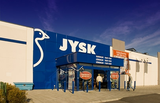









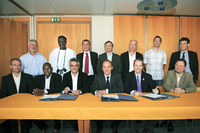



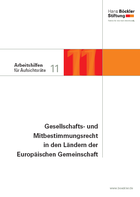
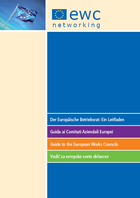




 European Trade Union
systems
European Trade Union
systems Employee representation in the European Company
(SE)
Employee representation in the European Company
(SE)
 EWC Workshop for professionals
EWC Workshop for professionals